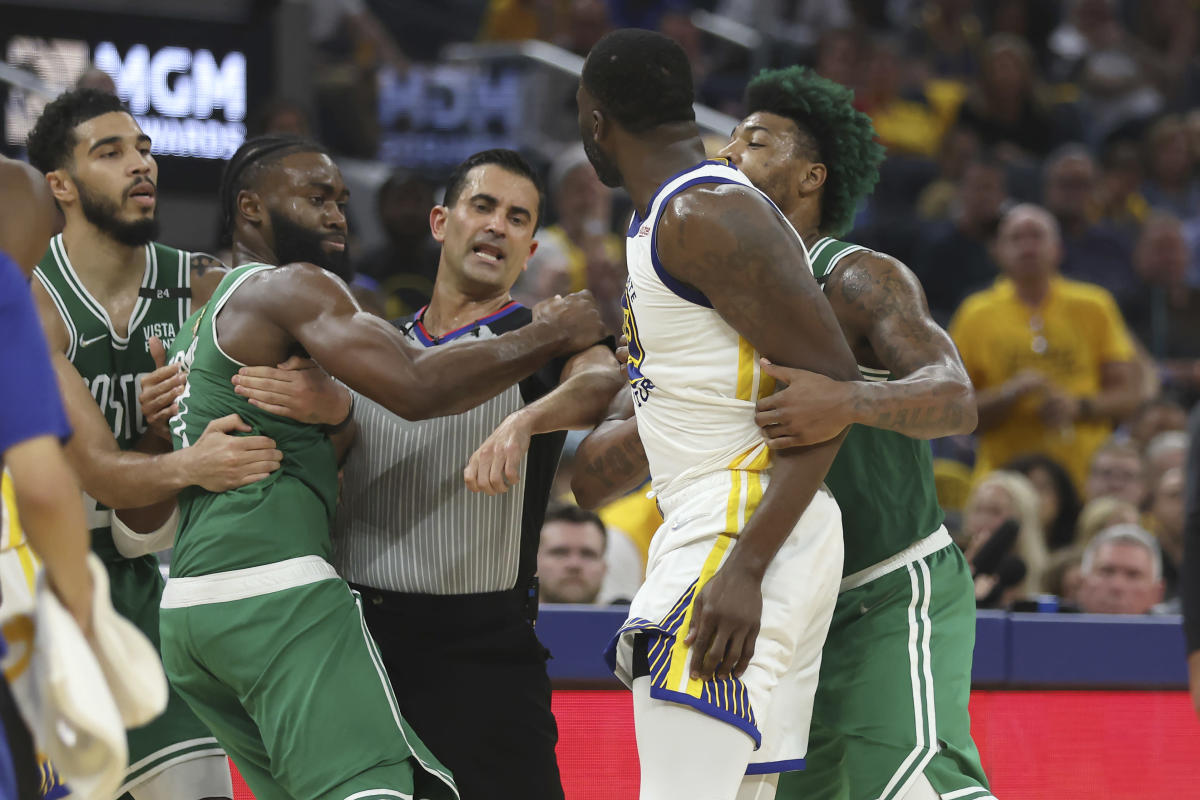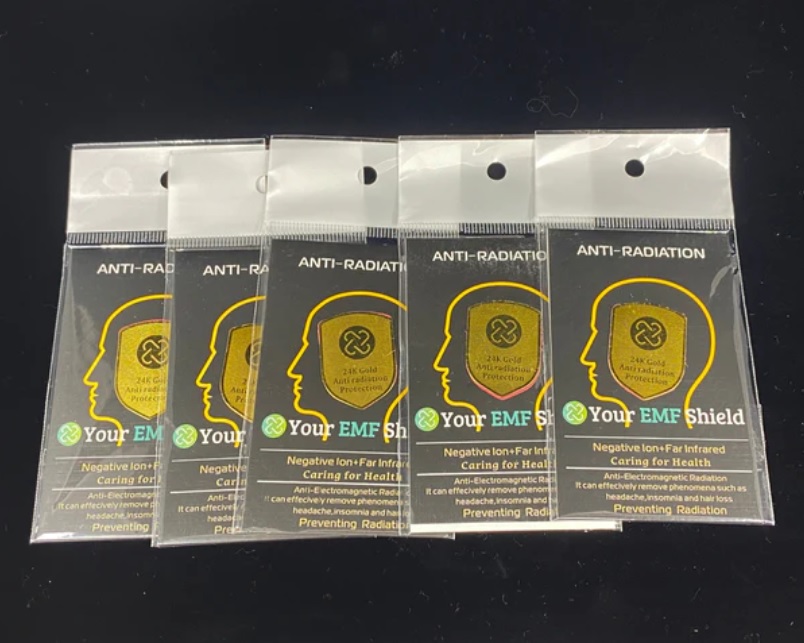
During Game 2 of the Celtics-Warriors NBA Finals on Sunday, ABC/ESPN announcers Jeff Van Gundy and Mark Jackson interviewed retired NBA referee Steve Javie about whether Warriors forward Draymond Green should have received a technical foul for an altercation with Celtics forward Jaylen Brown. And Javie’s comments took many viewers aback.
The fact that Green already had a technical foul, Javie opined, was a key consideration in this scenario. A second technical would have automatically disqualified Green, which Javie suggested wouldn’t have been the appropriate outcome.
More from Sportico.com
The remarks bluntly highlighted the factors referees consider and the discretion referees possess in determining when rules ought to apply. For a league that worked hard to overcome the 2007 scandal involving former NBA referee Tim Donaghy, and that—since the U.S. Supreme Court permitted states to legalize sports betting in 2018—has embraced wagers and the accompanying importance of data, Javie’s recommendation was striking.
To be clear, the referees assigned to the game, not Javie, deemed the play did not require further discipline. Also, Javie doesn’t work or speak for the NBA, for whom he refereed from 1986 to 2011; he’s employed by ESPN to provide expert analysis. But given Javie’s lengthy tenure in the NBA, which included officiating more than 1,000 games, he offers an authoritative voice on refereeing.
The NBA rule book doesn’t mention that a player who already has a technical should be given a break on a second technical. Instead, a technical foul is described as an appropriate penalty for a player who engages in “conduct which, in the opinion of an official, is detrimental to the game.” The rule book tries to craft a predictable and reliable metric for assigning a penalty intended to diffuse player tensions before they escalate.
The idea that a player who already has a technical is less deserving of a second T, which Javie’s comments implied, is counterintuitive. This player was previously found guilty of misconduct, at least in the court of ref opinion. In law, a person who repeatedly commits offenses—a recidivist—is ordinarily deemed more deserving of punishment. The logic: This person didn’t learn their lesson the first time around and seems inclined to act irresponsibly. To not punish undermines the goal of deterrence.
After the game, Green, a 10-year veteran who is second in the NBA in technical fouls in the combined 2021-22 regular and postseason, seemed emboldened by the lack of a call, telling ESPN: “I’ve earned deferential treatment. And I enjoy that.” Brown offered a different take. He complained that Green “tried to pull my pants down.”
Certain categories of NBA players are thought, by some, to be call beneficiaries. A few years ago, data scientist Peter Li conducted a study on “superstar calls,” the idea that referees tend to favor superstar players. Li found that superstars “receive preferential treatment on both offense and defense compared to stars and non-stars,” though he identified a small sample size and other caveats. Rookies, conversely, are assumed to lack the benefit of the doubt referees sometimes confer to veteran players.
For a sports league, the NBA is remarkably transparent about officiating, including through its L2M (Last Two Minutes) data reports. The league publicly admits when referees make mistakes and referees themselves admit mistakes. The NBA also employs a robust system for evaluating referees and holding them accountable.
But the issue raised by Javie is not about a bad call or even a bad no-call. It’s about, as Javie framed it, an intentional decision to not apply a rule because of the consequences to the game.
The NBA is different from the legal system in many ways. It’s an entertainment product where “punishments” are relatively trivial—a penalized player might have to sit on the bench or pay a fine. Life and liberty aren’t on the line; no one is going to jail or losing their profession or home.
In law, the consequences can be life-altering, even life-ending. A core goal of the legal system is therefore to treat people equally in similar circumstances. The Equal Protection Clause to the U.S. Constitution makes that clear.
Yet the legal system can fall short of that aspiration. A litigant’s access to resources or their demographic characteristics can impact outcomes. No two judges, not two juries and no two lawyers are the same. Cops sometimes choose not to arrest or to write a speeding ticket. Prosecutors sometimes exercise discretion and decline to prosecute.
Like rules in the NBA, laws in society aren’t always enforced, and some citizens might seem more equal than others.
Maybe Javie wasn’t so off after all.
Best of Sportico.com
Click here to read the full article.




